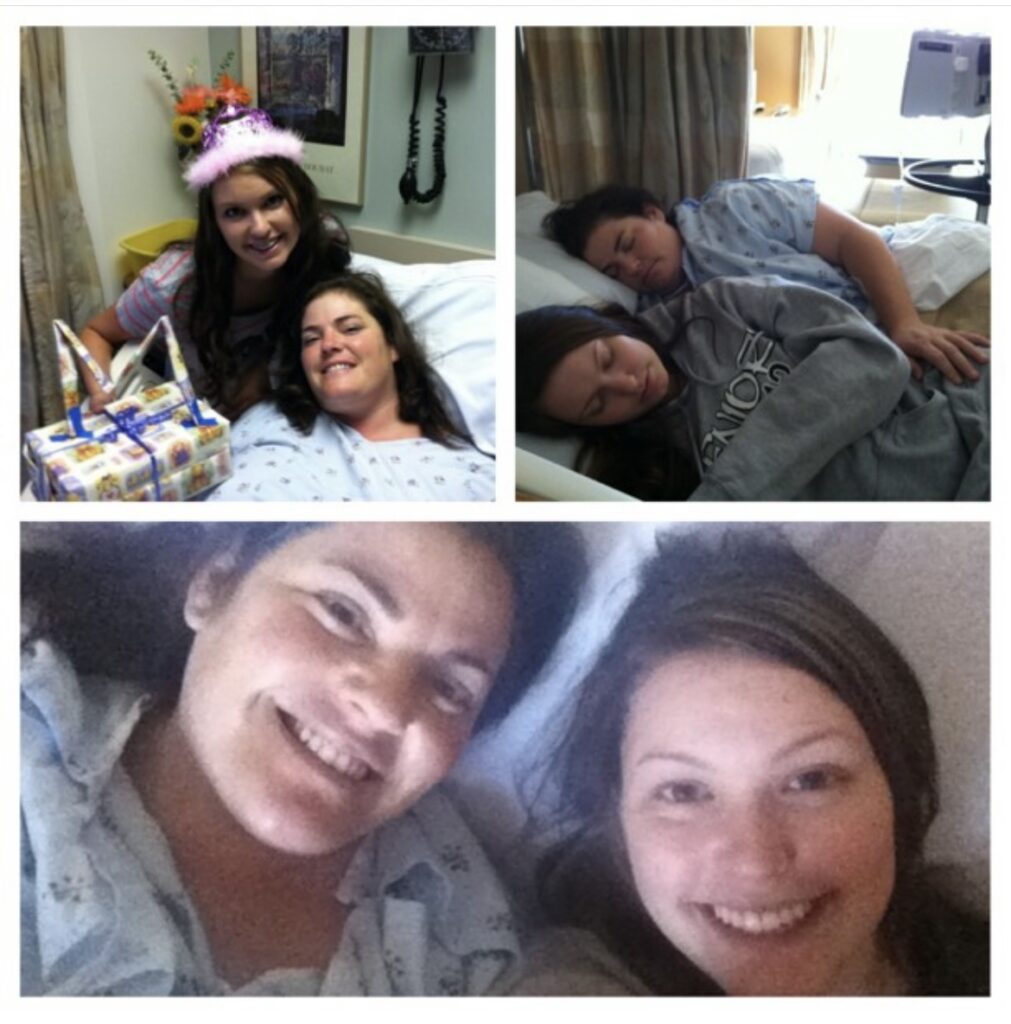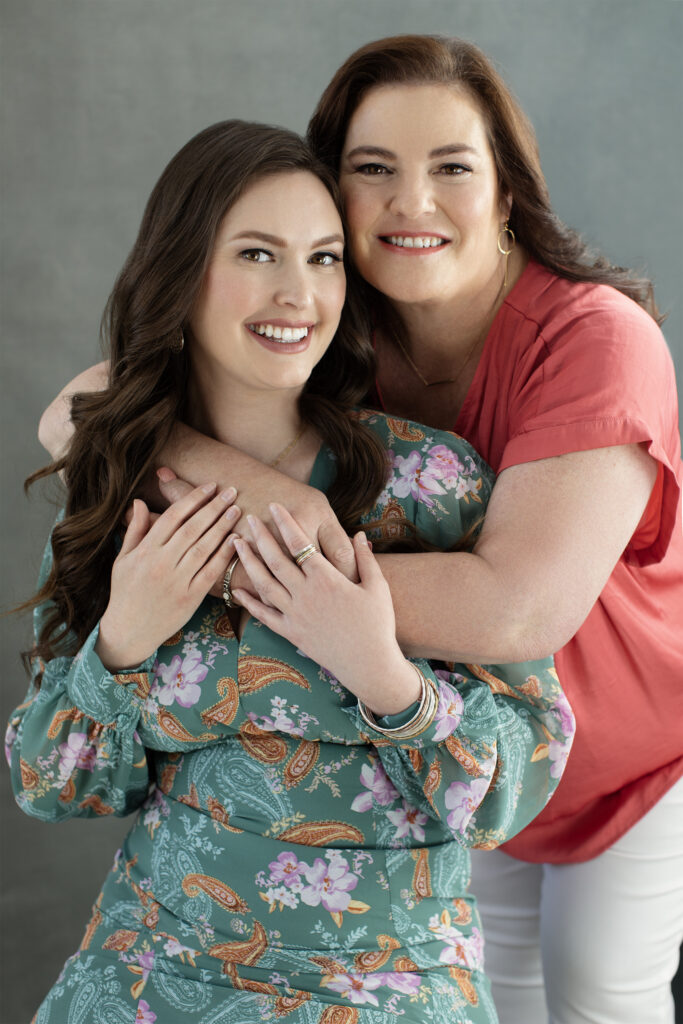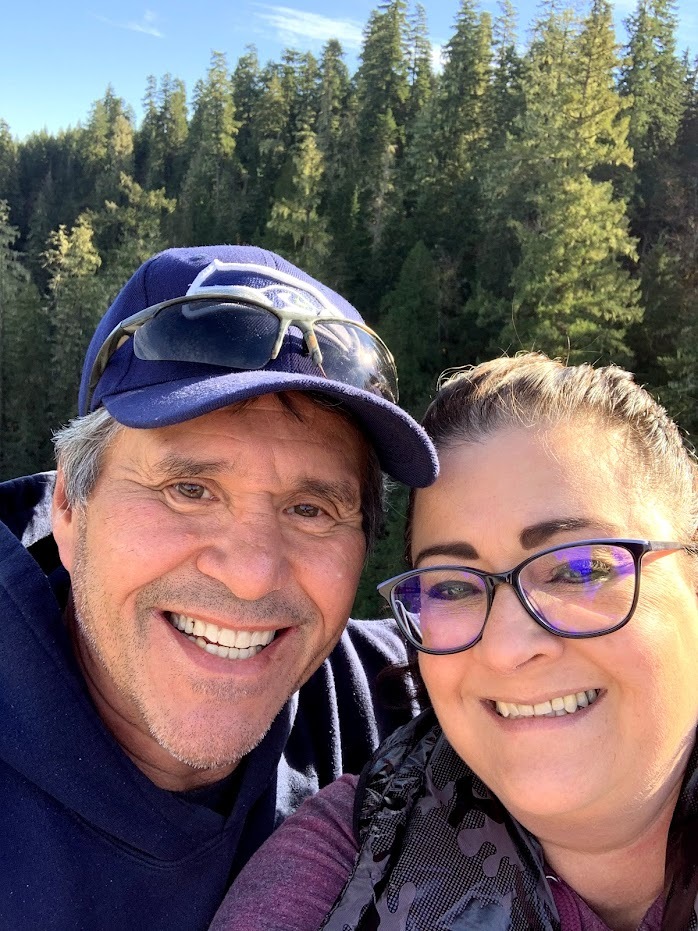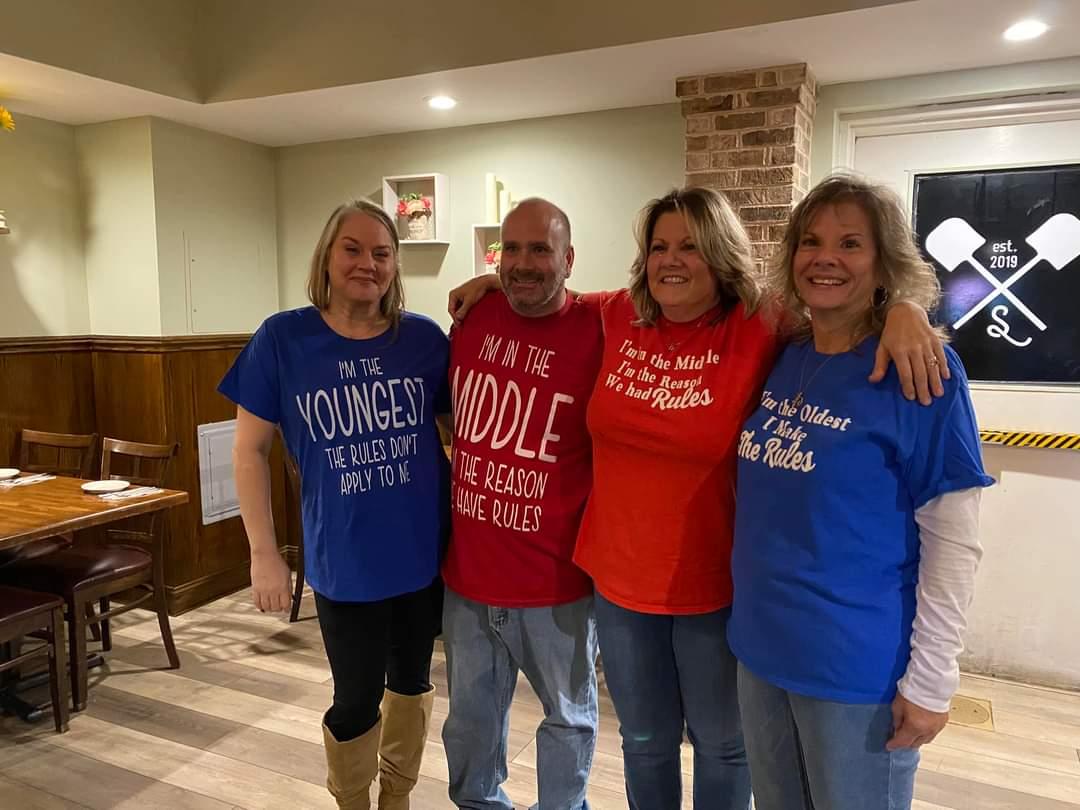Our customers have redefined prevention for us over the years. Hundreds of them have written to us, telling stories of how they’ve become the hero of their health journey.
We are continually so inspired by their stories we recently launched a new campaign called The Hero Gene that celebrates some of those customers in their own words.
Kenzie and Shannon’s BRCA1 Story
Kenzie and her mom, Shannon, are closer than the average mother and daughter, sharing a love of traveling together and their favorite foods. Kenzie knew there was Ashkenazi Jewish heritage in her background, but with no family history of breast cancer, she did not think there was a need to get screening for BRCA variants. Through 23andMe’s BRCA1/BRCA2 (Selected Variants) Genetic Health Risk Report,* Kenzie learned she had a BRCA1 variant that put her at a greatly increased risk of developing breast and ovarian cancer.

Women with one of these variants have a 45-85 percent chance of developing breast cancer and up to a 46 percent chance of developing ovarian cancer by age 70. One of her first thoughts was, “Could my mom have cancer and not know it?”
Kenzie immediately knew she had to call her mom.
“Mom, I have this gene, and I think you need to get tested.”
Shannon made an appointment with her oncologist, where she shared the news about Kenzie’s report. The oncologist referred her to a genetic counselor, who immediately set Shannon up for genetic testing. In addition, the genetic counselor suggested Kenzie talk to her doctor right away for follow-up testing. After doing so, both were able to take steps to minimize their risks. While Kenzie is opting to go for a less aggressive route of frequent scans and discussing family planning options, Shannon (a cancer survivor) decided to go ahead with preventative surgeries to lower her risk of developing BRCA-associated cancers.

The experience has taught both women how important it is to educate themselves about their health risks, to be proactive about their well-being, and to advocate for themselves to ensure they get the care they need.
“Kenzie’s test and me being able to find out that I was BRCA positive was lifesaving,” said Shannon.
As they prepare to share another holiday together, closer than ever, Kenzie couldn’t help but beam when talking about Shannon, “I’m really proud of my mom, she’s taken her health into her hands. Her life is the most important thing to me. She wanted to show me that she will survive.”
Melissa’s F5 Story
Melissa developed symptoms of a pulmonary embolism (PE), a blood clot in the lung, after a cross-country flight from Washington to Boston for a nurses conference. As a nurse, Melissa knew her symptoms weren’t typical but knowing she had an increased likelihood to develop harmful blood clots based on a factor V Leiden variant found by her 23andMe Hereditary Thrombophilia Genetic Health Risk report* prompted her to go to the ER before taking a return flight home.

Trusting her nurse’s instinct, she pushed to get evaluated a PE.
“I am not typically … insistent, but I was really insistent on this. I am absolutely sure it’s going to happen again and I may not have another chance. And I wasn’t willing to take that chance again.” They confirmed via a blood test and CAT scan that she had developed a PE.

She began taking a blood thinner right away so she could fly home. Melissa credits her knowledge of the gene with empowering her to take her health into her own hands, which means even more this time of year. “My family is sacred to me. It truly is all that matters. I would not have been able to meet my new granddaughter. I truly believe I’m here because of 23andMe. Because I was aware of that gene, and my doctors were aware of that gene, that continues to save my life.”
Which gene could empower you?
As we’ve heard from these and so many more customers, prevention doesn’t have to be a burden. In fact, it shouldn’t be a burden. Prevention is about advocating for yourself, and your health, so you can continue to live an incredible life for you, your family and friends. That starts with genetic insights that could lead to early detection. We hope you find your customer story. Your gene or genes that empower you, inspire you, help you and that could potentially save your life at the time you need the information most. #prevention
Note
*The 23andMe PGS test uses qualitative genotyping to detect select clinically relevant variants in the genomic DNA of adults from saliva for the purpose of reporting and interpreting genetic health risks. It is not intended to diagnose any disease. Your ethnicity may affect the relevance of each report and how your genetic health risk results are interpreted. Each genetic health risk report describes if a person has variants associated with a higher risk of developing a disease, but does not describe a person’s overall risk of developing the disease. The test is not intended to tell you anything about your current state of health, or to be used to make medical decisions, including whether or not you should take a medication, how much of a medication you should take, or determine any treatment.
Warnings & Limitations:
The 23andMe PGS Genetic Health Risk Report for BRCA1/BRCA2 (Selected Variants) is indicated for reporting of 44 variants in the BRCA1 and BRCA2 genes. The report describes if a person’s genetic result is associated with an increased risk of developing breast cancer and ovarian cancer and may be associated with an increased risk for prostate cancer, pancreatic cancer, and potentially other cancers. The variants included in this report do not represent the majority of the BRCA1/BRCA2 variants in people of most ethnicities. This report does not include variants in other genes linked to hereditary cancers and the absence of variants included in this report does not rule out the presence of other genetic variants that may impact cancer risk. This report is for over-the-counter use by adults over the age of 18, and provides genetic information to inform discussions with a healthcare professional. The PGS test is not a substitute for visits to a healthcare professional for recommended screenings or appropriate follow-up. Results should be confirmed by an independent genetic test prescribed by your own healthcare provider before taking any medical action. For important information and limitations regarding each genetic health risk report, visit 23andme.com/test-info.




